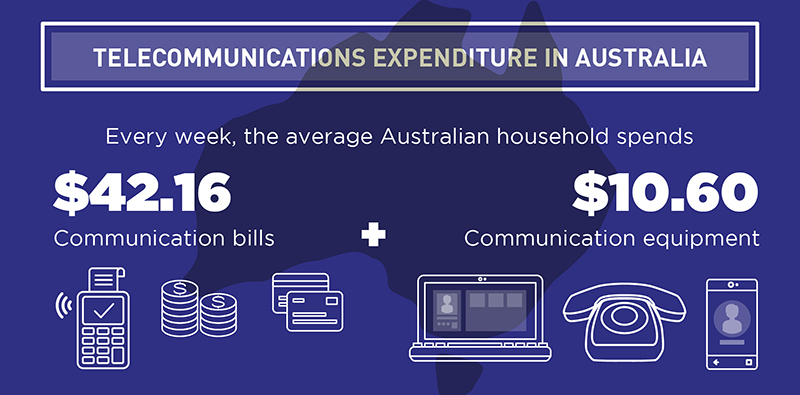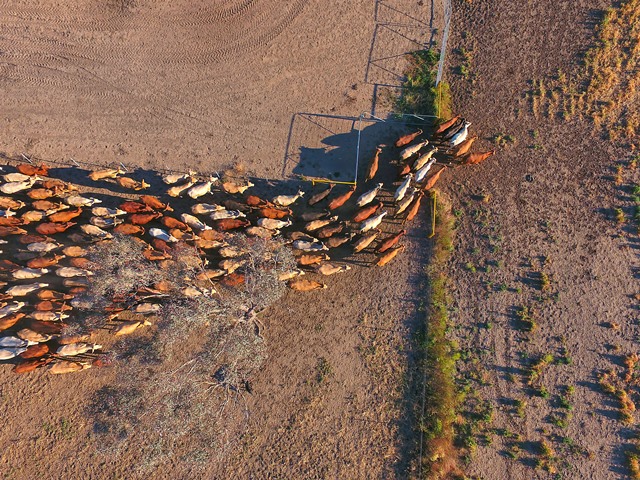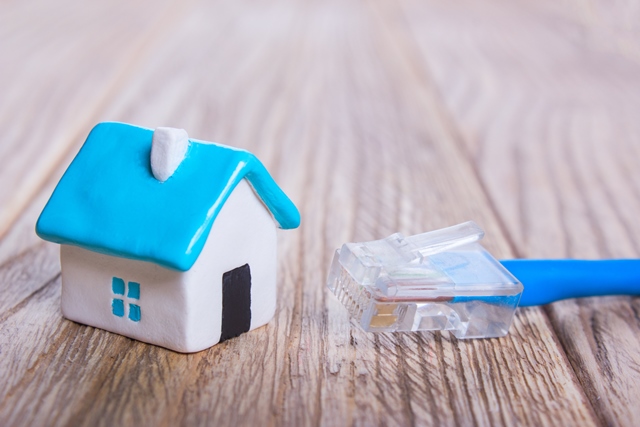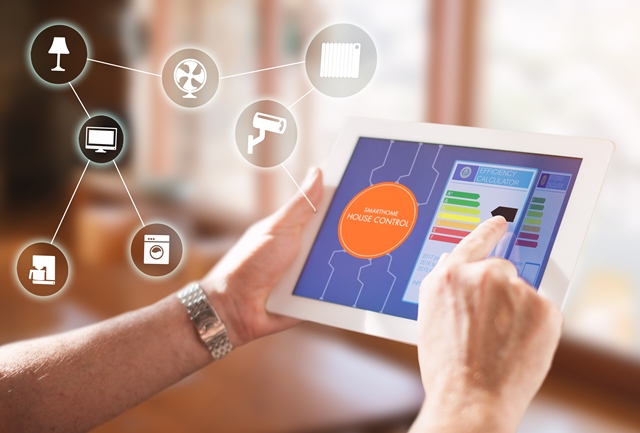- Details
 ACCAN worked with Dr Greg Ogle of the South Australian Council of Social Services to analyse the detailed telecommunications data from the Australian Bureau of Statistics’ 2015-16 Household Expenditure Survey. This analysis provides a more detailed view of the telecommunications expenditure of different groups in Australia.
ACCAN worked with Dr Greg Ogle of the South Australian Council of Social Services to analyse the detailed telecommunications data from the Australian Bureau of Statistics’ 2015-16 Household Expenditure Survey. This analysis provides a more detailed view of the telecommunications expenditure of different groups in Australia.
Some key findings are that:
- Details
 RRR Communications Coalition celebrates one year
RRR Communications Coalition celebrates one year
By Teresa Corbin & Fiona Simson*
Anyone who lives in a rural or regional area knows the pain of poor telecommunications services. We often hear stories of people pulling their hair out trying to run businesses, apply new technologies and educate their kids on small data allowances and unreliable connections.
Read more: All we want in 2018 is #BetterBushComms
Write comment (0 Comments)- Details
For consumers, migrating their services to the National Broadband Network (NBN) can be complicated and any loss of services or functionality can cause significant risk to life and result in extra costs and inconvenience for consumers. This statement sets out key areas that ACCAN believes should be improved for a successful consumer experience.
- Details
 An interdisciplinary team of researchers at the University of Melbourne have updated their research on the fate of online accounts, financial assets and personal profiles when a user passes away. The team investigated licencing policies, terms of use agreements and copyright law, and interviewed a range of people, including funeral directors, religious workers, internet content and service providers, as well as estate planning lawyers.
An interdisciplinary team of researchers at the University of Melbourne have updated their research on the fate of online accounts, financial assets and personal profiles when a user passes away. The team investigated licencing policies, terms of use agreements and copyright law, and interviewed a range of people, including funeral directors, religious workers, internet content and service providers, as well as estate planning lawyers.
The updated version includes new features and services such as 'legacy contact' options, legislation changes and online bereavement practices.
- Details
 nbn announced today that it will 'pause' the rollout of NBN HFC connections. This is because nbn has identified issues in the HFC rollout that need remediation, and will be taking a more careful approach that should result in improved customer experience. ACCAN welcomes this approach.
nbn announced today that it will 'pause' the rollout of NBN HFC connections. This is because nbn has identified issues in the HFC rollout that need remediation, and will be taking a more careful approach that should result in improved customer experience. ACCAN welcomes this approach.
Consumers in HFC areas may be wondering how this announcement will affect them. We have identified five different situations that consumers may find themselves in. See below for information on how consumers in HFC areas may be affected.
Read more: nbn ‘pauses’ new HFC connections
Write comment (0 Comments)- Details
 In November, the ACCC announced that Telstra will offer remedies to around 42,000 customers. Announcements that Optus would compensate more than 8,700 of its customers and that TPG would compensate nearly 8,000 of its customers for the same issue were made in December.
In November, the ACCC announced that Telstra will offer remedies to around 42,000 customers. Announcements that Optus would compensate more than 8,700 of its customers and that TPG would compensate nearly 8,000 of its customers for the same issue were made in December.
Both announcements received wide coverage in the media. There is some confusion around the issue and who is entitled to a remedy. This blog attempts to clear up this confusion.
What is the issue?
While there are a number of issues that consumers are reporting with services over the NBN, this compensation relates to a very specific problem where the maximum download speed consumers paid for was never possible at their premises.
Read more: Getting a refund for unattainable NBN speeds
Write comment (0 Comments)- Details
Recently, auDA, the body responsible for Australia’s domain name system agreed to introduce ‘direct registrations’. This is where your chosen internet domain name does not use the familiar “.com.au”, “.net.au”, “.org.au”, and new names will be simply “orgname.au”.
Many Australian not-for-profit organisations and businesses currently have domain names for their internet presences under the second level domains. For example: *.com.au and *.org.au. Domain names are used to find resources and services on the internet such as web pages (eg www.accan.org.au) and email addresses (This email address is being protected from spambots. You need JavaScript enabled to view it.).
- Details
 Many Australian not-for-profit organisations and businesses currently have domain names for their internet presences under the second level domains. For example: *.com.au and *.org.au. Domain names are used to find resources and services on the internet such as web pages (eg www.accan.org.au) and email addresses (This email address is being protected from spambots. You need JavaScript enabled to view it.).
Many Australian not-for-profit organisations and businesses currently have domain names for their internet presences under the second level domains. For example: *.com.au and *.org.au. Domain names are used to find resources and services on the internet such as web pages (eg www.accan.org.au) and email addresses (This email address is being protected from spambots. You need JavaScript enabled to view it.).
Recently, auDA, the body responsible for Australia’s domain name system agreed to introduce ‘direct registrations’. This is where your chosen internet domain name does not use the familiar “.com.au”, “.net.au”, “.org.au”, and new names will be simply “orgname.au”.
Read more: Australia’s Domain Name System is changing
Write comment (19 Comments)- Details
ACCAN recently provided feedback to the Digital Transformation Agency on the draft documents for the Trusted Digital Identity Framework.
The documents set out the rules (policies, standards, and requirements) for all organisations and agencies that want to take part in the Government’s digital identity project. When the project is complete, consumers will be able to create a single online identity called ‘Govpass’ to login into all services provided by the participating agencies and organisations.
- Details
 In the flurry of media this week about the TIO Annual Report and 41 per cent increase in telecommunication complaints received, Communication Alliance and nbn both made reassuring comments about the state of the problem.
In the flurry of media this week about the TIO Annual Report and 41 per cent increase in telecommunication complaints received, Communication Alliance and nbn both made reassuring comments about the state of the problem.
But how reassured should we be?
Communications Alliance is “pleased” that in the last three months the rate of complaints slightly decreased (from 9 per 10,000 services in operation between Apr-Jun 2017 to 8.3 per 10,000 Jul- Sept 2017).
Read more: Fact Check: Communication Alliance and nbn media releases
Write comment (0 Comments)- Details
ACCAN is disappointed that complaints to the Telecommunications Industry Ombudsman (TIO) have increased by a massive 41.1 per cent during 2016-17. This rise in complaints is reflective of the experiences we are hearing from consumers and indicates there are systemic issues with customer service in the industry. Customer service was the top complaint issue overall. The report shows that all services and providers saw an increase in complaints indicating a genuine need to update consumer protections.
“We are very concerned about the significant, across the board, increase in complaints for landline, mobile and internet services,” said ACCAN Deputy CEO, Narelle Clark. “This reverses the previous downward trend in complaint levels. We are therefore calling on all providers to lift their game and act to immediately improve customer service and the consumer experience.”
Read more: TIO complaints reveal need for updated safeguards
- Details
 Consumers are increasingly buying Internet-connected appliances for their homes. Often referred to as the Internet of Things (IoT), the range of internet-connected products already available includes not only the obvious things like Smart TVs, gaming consoles, security and safety cameras, but smart light bulbs, sewing machines and even dishwashers.
Consumers are increasingly buying Internet-connected appliances for their homes. Often referred to as the Internet of Things (IoT), the range of internet-connected products already available includes not only the obvious things like Smart TVs, gaming consoles, security and safety cameras, but smart light bulbs, sewing machines and even dishwashers.
Telstra says the average home already has 11 or 12 connected devices and predicts that by 2020 a typical home will have about 30.
As well as being useful by enabling us to remotely manage our home environments, many of these devices also collect a lot of data. Conceivably, this data collection can pose huge risks to consumers’ privacy and security.
Read more: How safe are IoT devices?
Write comment (0 Comments)